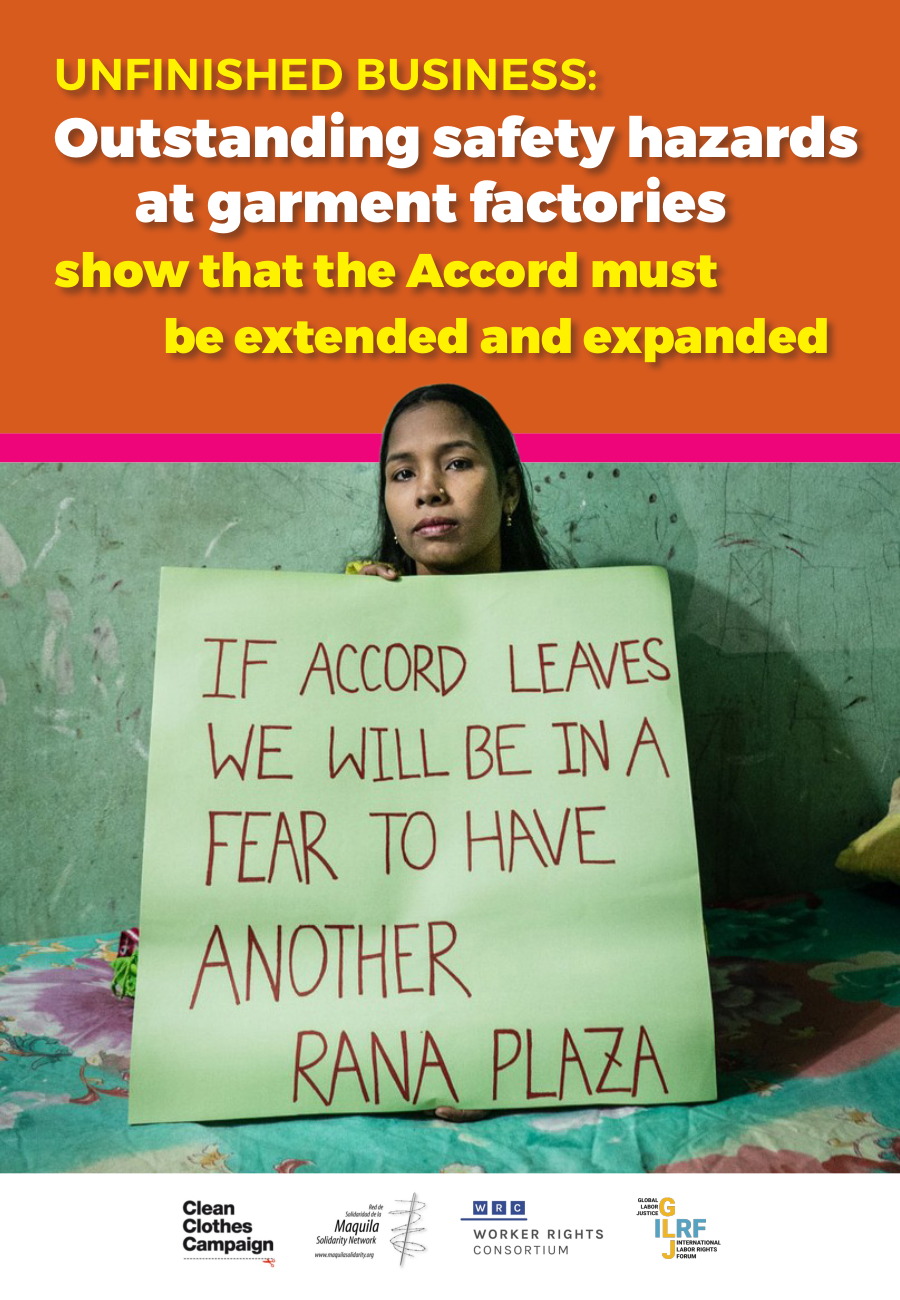
Remaining safety hazards in Bangladeshi factories show that apparel brands must not abandon binding safety programme
In the week of the world day for health and safety at work and the week after the Rana Plaza anniversary, the witness signatories to the Bangladesh Accord publish a report showing that deadly safety hazards remain at factories producing for major apparel brands and retailers. The Bangladesh Accord - the most successful safety programme in the contemporary history of apparel supply chains - is set to expire on 31 May of this year.
In this report, the witness signatories demonstrate that the Accord’s work must continue, and call for brands and retailers to sign a new, legally binding agreement that will allow the Accord’s work to be extended and its model to be expanded to other countries.
The report "Unfinished Business: Outstanding safety hazards at garment factories show that the Accord must be extended and expanded" is based on a review of the Accord’s publicly available data on safety progress, and enumerates uncorrected safety hazards at factories producing for 12 leading brands covered by the Accord, including H&M, C&A, and PVH (Tommy Hilfiger).
The data show that a lot of progress has been made to make factories safer, with a majority of safety hazards being corrected. But the report also shows that weakening the legal accountability of the Accord agreement now would risk the lives of innumerable workers as many important safety fixes have yet to be completed or verified. Many of the safety hazards still present in factories are the most costly ones to remediate. Brands and retailers must ensure that the factories they are sourcing from have the financial means to complete these renovations.
The witness signatories to the Accord -- Clean Clothes Campaign, International Labor Rights Forum/Global Labor Justice, Maquila Solidarity Network, and Worker Rights Consortium -- demonstrate that if the Accord agreement is not extended and expanded:
- circumstances of factories with unresolved safety problems will get worse, in absence of the same legally binding requirements and incentives;
- voluntary initiatives will replace the Accord’s safety programme, leaving companies accountable to no one but themselves, which has been a recipe for failure in the past;
- much-needed improvements to safety in other garment producing countries will be delayed or not carried out at all.
Members of the Bangladesh Accord have less than five weeks to ensure that the progress made by the Accord is protected and continued by a legally binding agreement with individual accountability. The Accord is widely recognized as a proven model that meets the requirements of human rights due diligence. Brands can continue the progress achieved over the past five years and maintain their reputation as industry leader. Or they can turn away from the path of progress by allowing the Accord to expire, with grim consequences for workers.